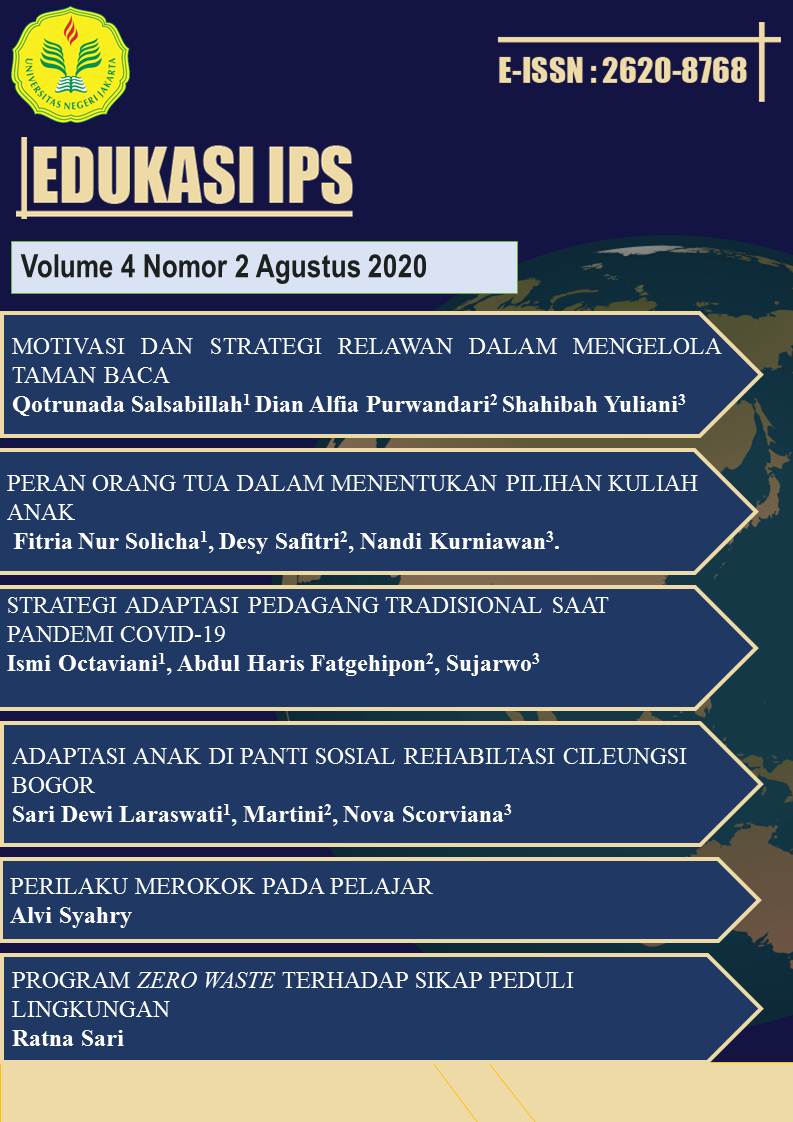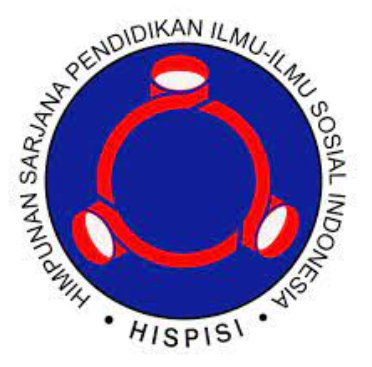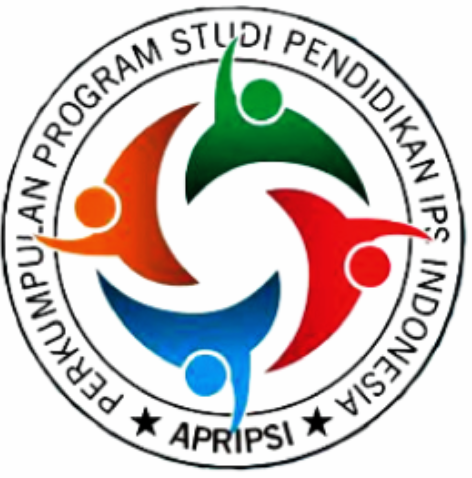ADAPTASI ANAK DI PANTI SOSIAL REHABILTASI CILEUNGSI BOGOR
Keywords:
Children, Adaptation, Children Conflict With Law, Anak, Adaptasi, Anak Berhadapan dengan HukumAbstract
Abstrak
Kasus penyimpangan anak di Indonesia semakin terus memprihatinkan dari kasus ringan hingga berat. Penyimpangan dapat mengakibatkan anak mengalami kasus pidana hukum disebut anak berhadapan dengan hukum (ABH). Tujuan penelitian ini untuk mengetahui adaptasi anak berhadapan dengan hukum dan penyebab anak bisa beradaptasi baik di panti sosial rehabilitasi Cileungsi Bogor. Metodologi penelitian ini menggunakan pendekatan kualitatif. Subjek anak berusia 12-18 tahun dengan sample 4 orang responden. Hasil penelitian menyimpulkan bahwa (1). Adaptasi anak berhadapan dengan hukum, yaitu (a). Adaptasi sosial yakni melalui tipe interaksi sosial yang kemudian menghasilkan sikap solidaritas. (b). Adaptasi spiritual sudah baik mengikuti kegiatan spiritual tetapi tidak seluruhnya anak mampu mengatasi permasalahan kehidupan dengan memanfaatkan aktivitas spiritual. (c). Adaptasi kultural dalam terbentuknya tingkah laku melalui kesepakatan dan keterbatasan sehingga menghasilkan prinsip dan aturan yang harus dilaksanakan. (2) Penyebab anak bisa beradaptasi baik, yaitu (a). faktor internal, diantaranya motivasi sebagai penyebab yang mendominasi anak beradaptasi baik. Namun faktor pendidikan anak tidak mempengaruhi proses adaptasi. (b). faktor eksternal yang mendukung penyesuaian diri anak diantaranya peran keluarga sebagai motivator, peran teman sebagai penasihat, serta lingkungan panti sebagai penyelenggara pendidikan dan fasilitator dalam pemenuhan kebutuhan. Implikasi penelitian ini bahwa proses adaptasi baik akan berpotensi anak bertindak positif dengan dukungan faktor internal dan eksternal.
Kata Kunci: Anak, Adaptasi, Anak Berhadapan Dengan Hukum
Abstract
Case of digression children in Indonesian more and more concern from mild case to severe case. Digression can impact a child to experience a criminal law case is called children in conflict with law. The purpose of this research is to knowing adaptation children conflict with law and the cause of good child adaptation in Panti Sosial Rehabilitasi Cileungsi Bogor. Methodology of this research is a qualitative approach. Subject of this research is children the ages of 12 to 18 years old with 4 sample respondent. The results of the research concluded that (1). Adaptation children conflict with law, is (a). Social adaptation that is by social interactions type which then the result attitude of solidarity. (b). Spiritual adaptation is good to follow spiritual activities but not all children can resolved life problem with utilize spiritual activity. (c). Culture adaptation that is the formation of behavior by agreement and limitations so that result principles and rules that must be implemented. (2) The cause of child good adaptation, that is (a). Internal factors, including a motivation as a cause that dominates the child adaptation. Howover factor children's education does not affect the adaptation process. (b). External factors that support children's adaptation, includ a the role of the family as a motivator, the role of a friend as an advisor, and then institution environment as a education provider and the facilitator in compliance the needs. The implication of this research is the process of good adaptation will potentially to children act positively with the support of internal and external factors.
Keyword: Children, Adaptation, Children Conflict With Law.
Downloads
Published
How to Cite
Issue
Section
License
Authors who publish with this journal agree to the following terms:
- Authors retain copyright and grant the journal right of first publication with the work simultaneously licensed under a Creative Commons Attribution ShareAlike License that allows others to share the work with an acknowledgement of the work's authorship and initial publication in this journal.
- Authors are able to enter into separate, additional contractual arrangements for the non-exclusive distribution of the journal's published version of the work (e.g., post it to an institutional repository or publish it in a book), with an acknowledgement of its initial publication in this journal.
- Authors are permitted and encouraged to post their work online (e.g., in institutional repositories, pre-prints sites or on their website) prior to and during the submission process, as it can lead to productive exchanges, as well as earlier and greater dissemination of published work







